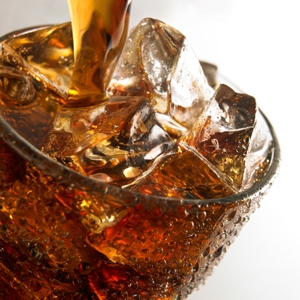We’ve all seen the commercials featuring Captain Obvious, the spokes-character for hotels.com. Now, I’ve discovered there’s an equivalent sage in the food science arena who collects research studies that prove what we already knew. Ladies and gentlemen, please welcome Doctor Obvious…
 Science has discovered that people waste food… Thank you, Doctor Obvious.
Science has discovered that people waste food… Thank you, Doctor Obvious.
Some recent gems from the files of Doctor Obvious…
Kids targeted by junk food advertising
No… Really? A study by researchers at the University of Adelaide in Australia had found that junk food ads are shown more frequently on TV at times when many children are watching. Thank you, Doctor Obvious. Junk food makers and sellers have known enough to target their advertising to the most susceptible audience for decades.
The research, led by University of Adelaide Associate Professor Lisa Smithers and published in the Journal of Paediatrics and Child Health, also showed that children were exposed to twice as much unhealthy food advertising as healthy food advertising. Ditto, Doctor Obvious.
Researchers went to the trouble of building a one-of-a-kind automated television monitoring system to log a full year’s worth of ads on a single Adelaide area TV station. You can bet taxpayer dollars funded this more or less redundant research…
Each American wastes a pound of food each day
A University of Vermont study has ‘revealed’ that, between 2007-2014, U.S. consumers wasted nearly 150,000 tons of food per day. Researchers estimate that food waste corresponded with the use of 30 million acres of land (7 percent of total US cropland) and 4.2 trillion gallons of water annually. Higher quality diets were associated with higher levels of food waste. Thank you, Doctor Obvious.
We already knew that, worldwide, people waste billions of tonnes of food each year, throwing out some of it just because it isn’t the right size or isn’t pretty enough to please packers and retailers.
‘Soda Tax’ reduces consumption of sugary beverages
In Philadelphia, the city slapped a 20 percent municipal surcharge on sugary pop and energy drinks. Guess what researchers ‘discovered’?
The study, published in the American Journal of Preventive Medicine and led by Yichen Zhong, a Doctoral Student at the Dornsife School of Public Health at Drexel University, found that, compared to residents of nearby cities like Trenton, Camden and Wilminton, Philadelphia residents were 40 percent less likely to drink sugary soda and 60 percent less likely to drink an energy drink each day. At the same time, Philadelphians became 58 percent more likely to drink bottled water every day. Thank you, Doctor Obvious.
Although the political campaign around the tax focused on increasing revenue to make pre-K schooling more widely available in Philadelphia, a sugar-sweetened beverage tax has obvious implications for public health. Ditto, Doctor Obvious.
And that’s just a taste…
…Of what science has recently discovered about things we already knew. We’ll be checking in with Doctor Obvious regularly in future to ‘discover’ other health and wellness facts we already knew…
~ Maggie J.

